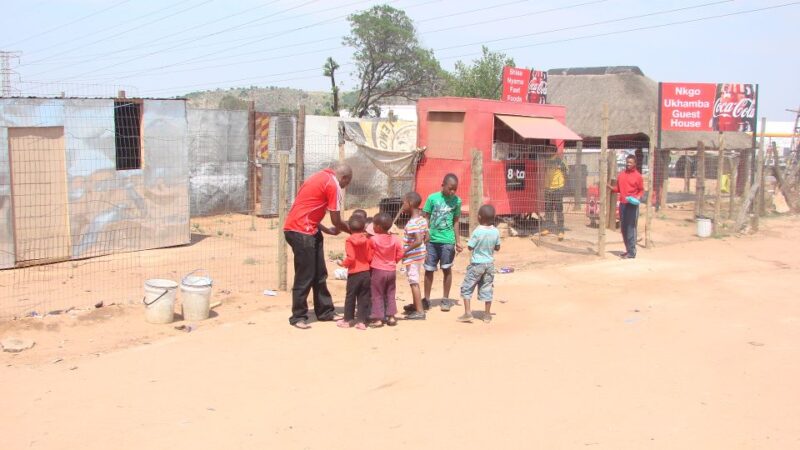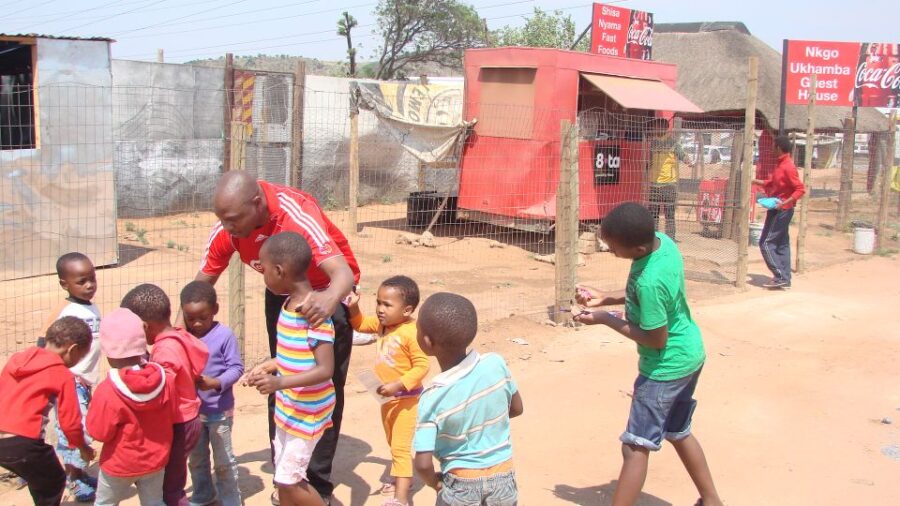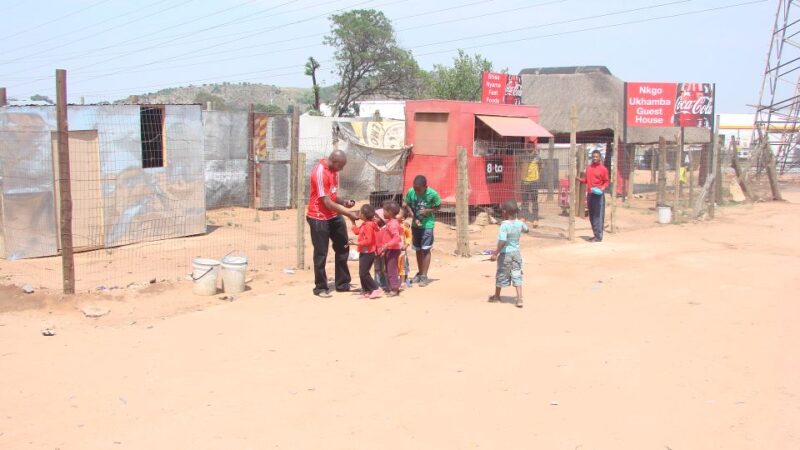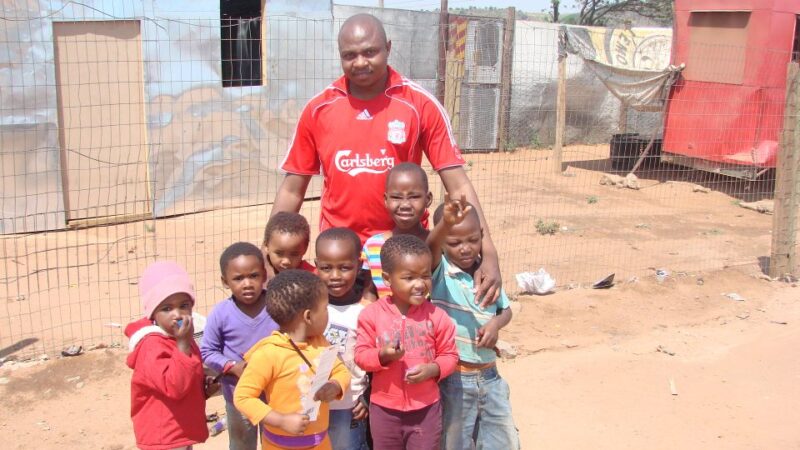Soweto and Johannesburg offer a powerful exploration of South Africa’s tumultuous history, with Vilakazi Street standing as a testament to resilience. The Apartheid Museum enhances the experience, providing immersive exhibits that reveal the harsh realities of segregation. Visitors can delve deeper into the nation’s journey towards freedom and equality, reflecting on the sacrifices made during the 1976 protests at the Hector Pietersen Memorial. Johannesburg’s diverse neighborhoods further enrich the cultural understanding, inviting travelers to uncover the nuances of South African society.
Good To Know

-
Soweto, a symbol of the anti-apartheid struggle, offers historical and cultural sites like Vilakazi Street, Hector Pietersen Memorial, and Nelson Mandela House Museum.
-
The Apartheid Museum in Johannesburg provides an immersive exploration of the apartheid era through multimedia exhibits, artifacts, and personal accounts.
-
Johannesburg’s diverse neighborhoods, such as Hillbrow and Munro Drive Viewpoint, showcase the city’s resilience and determination in the face of apartheid.
-
The Hector Pietersen Memorial honors the 12-year-old student killed during the 1976 Soweto Uprising, serving as a poignant reminder of the anti-apartheid movement.
-
Visiting Bishop Tutu’s residence in Soweto offers insights into the faith and community’s role in the struggle against apartheid.
Overview of Soweto and Johannesburg

The vibrant city of Soweto represents the struggle against apartheid, offering visitors a glimpse into the rich cultural tapestry that defines this historic African hub.
Situated in Johannesburg, Soweto is home to the iconic Vilakazi Street, where the homes of Nelson Mandela and Archbishop Desmond Tutu stand as testaments to the anti-apartheid movement.
Towering over the city, the Munro Drive Viewpoint provides an elevated perspective of the Johannesburg skyline, while the bustling Hillbrow neighborhood showcases the diversity and energy of this rapidly evolving metropolis.
Exploring Soweto and Johannesburg allows travelers to connect with the resilience and determination that have shaped South Africa’s past and present.
You can also read our reviews of more museum experiences in Johannesburg
Historical Significance of Vilakazi Street

Tracing its roots to the anti-apartheid struggle, Vilakazi Street in Soweto stands as a testament to the resilience and determination of South Africa’s people.
This historic road is home to the Nelson Mandela House Museum, where the iconic leader once lived. It also hosts the Hector Pietersen Memorial, commemorating the student protests that ignited the Soweto Uprising of 1976.
Visitors can explore the vibrant local culture, browse authentic African crafts, and gain a deeper understanding of the country’s complex past.
Vilakazi Street’s enduring significance underscores the pivotal role Soweto played in the fight for freedom and equality.
Experiencing the Apartheid Museum

After exploring the historic Vilakazi Street, the tour now leads visitors to the Apartheid Museum.
This world-class museum is a poignant and powerful exploration of South Africa’s apartheid era. Visitors are immersed in the country’s turbulent past through multimedia exhibits, artifacts, and personal accounts.
The museum’s design symbolizes the segregation of the time, with visitors divided into "white" and "non-white" entrances upon arrival. As they progress through the exhibits, the realities of institutionalized racism and the courage of those who fought against it come to life.
The Apartheid Museum provides a deeply moving and educational experience, offering crucial insights into this pivotal chapter of South African history.
Exploring Johannesburg’s Diverse Neighborhoods
From the Apartheid Museum, the tour now ventures into the diverse neighborhoods of Johannesburg, offering a multifaceted exploration of the city’s urban landscape.
The first stop is the Munro Drive Viewpoint, providing an elevated perspective of the vibrant city.
The tour then moves to Hillbrow, the most densely populated area in Johannesburg, before visiting the Nelson Mandela House Museum on Vilakazi Street.
Other highlights include the Hector Pietersen memorial, informal settlements, upper-class suburbs, and the iconic Orlando Towers.
With a knowledgeable guide and a mix of historical and cultural sites, this tour provides an immersive experience into the complex tapestry of Johannesburg’s neighborhoods.
More Great Tours NearbyReflections on the Hector Pietersen Memorial
The Hector Pietersen memorial stands as a poignant reminder of the sacrifices made during the anti-apartheid struggle.
The memorial honors the memory of the 12-year-old boy who was killed by police during the Soweto Uprising in 1976. Visitors can reflect on the tragic loss of young life and the courage of those who fought against the injustices of apartheid.
The memorial’s design, featuring a sculpture of Pietersen being carried by a fellow student, evokes the sorrow and determination that characterized the struggle.
As part of the Soweto tour, the Hector Pietersen memorial provides a powerful opportunity to understand the history and legacy of the anti-apartheid movement.
- Seamless Airport Shuttle: OR Tambo to Melrose Arch
- Soweto: Hop-On Hop-Off Bus, City Tour and Apartheid Museum
- Joburg Art Gallery Hopping With Thabo the Tourist
- Walk With Me ( Mandela’S Neighbour) Through Soweto Vilakazi
- Johannesburg: Private Transfer Sandton to OR Tambo Airport
- South Africa Airport Transfer, Johannesburg Guided Day Tour
Visiting Bishop Tutu’s Residence
As visitors make their way through the streets of Soweto, one of the highlights is the opportunity to visit the humble residence of Bishop Desmond Tutu. This modest home serves as a powerful reminder of the sacrifices and struggles endured during the apartheid era. Guests are welcomed into the Bishop’s living room, where they can imagine the countless discussions and strategizing sessions that took place within these walls. A visit to this iconic location provides a deeper understanding of the role that faith and community played in the fight for freedom and equality.
| Feature | Description |
|---|---|
| Location | Bishop Tutu’s Residence, Soweto |
| Significance | Symbol of anti-apartheid movement |
| Highlights | Glimpse into Tutu’s personal life |
| Atmosphere | Humble, reflective |
| Experience | Informative, inspirational |
Insights Into South African Culture
While exploring Soweto and Johannesburg, visitors gain meaningful insights into the vibrant and resilient South African culture.
The tour showcases the diversity and strength of the local communities, from the informal settlements to the affluent suburbs. Interacting with residents, such as the children and vendors, provides a glimpse into the daily lives and traditions of South Africans.
The visits to sites like the Hector Pietersen Memorial and the Apartheid Museum further deepen the understanding of the country’s complex history and the ongoing struggle for equality.
Through this immersive experience, travelers come away with a profound appreciation for the enduring spirit and resilience of the South African people.
Tour Logistics and Recommendations
For those interested in embarking on this comprehensive tour, several key logistical details and recommendations are worth noting.
The tour is priced at $73.58 per person and lasts 8 hours, with the option to cancel up to 24 hours in advance for a full refund. Hotel pickup and drop-off, as well as entrance fees to the Apartheid Museum and Nelson Mandela House, are included.
While lunch isn’t provided, gratuities for the guide are recommended at 15-20%. The tour is wheelchair-accessible, and English and French-speaking guides are available.
Customer reviews have been overwhelmingly positive, praising the tour’s planning and knowledgeable guide.
Frequently Asked Questions
Can I Book the Tour for a Different Language?
Yes, the tour offers a live English and French-speaking guide, so you can book the tour in your preferred language. The tour is also wheelchair accessible.
Is the Tour Available on Weekends?
The tour is available on weekends. According to the information provided, the Soweto and Johannesburg tour, including the Apartheid Museum, operates daily and allows for free cancellation up to 24 hours in advance.
Can I Bring My Own Lunch on the Tour?
You can bring your own lunch on the Soweto tour, but it’s not included in the tour price. The tour provides hotel pickup and drop-off, entrance fees, and a knowledgeable guide, leaving guests responsible for their own meals.
What Is the Dress Code for the Tour?
The tour has a casual, comfortable dress code. Guests are advised to wear clothing suitable for walking and exploring the city, such as comfortable shoes and weather-appropriate attire. There is no formal dress requirement for this tour.
Can I Customize the Itinerary Based on My Interests?
Yes, the tour allows some customization based on the guest’s interests. Guests can discuss their preferences with the guide and make adjustments to the itinerary within the scope of the tour to personalize the experience.
The Sum Up
Soweto and Johannesburg offer a profound exploration of South Africa’s complex history, from the resilience embodied by Vilakazi Street to the sobering insights of the Apartheid Museum. Visitors can gain a deeper understanding of the nation’s long struggle for freedom and equality, while also discovering the vibrant culture that thrives amidst the legacy of apartheid. These destinations provide a thought-provoking and transformative experience for those seeking to engage with South Africa’s past and present.
You can check availability for your dates here:More Museum Experiences in Johannesburg
More Tour Reviews in Johannesburg
Not for you? Here's more nearby things to do in Johannesburg we have reviewed
- Soweto Heritage: Tour South Africa’s Historistic Township
- Soweto: Guided Bicycle Tour with Lunch
- Soweto Street Food & Beer Walk
- Soweto: Full Day Tour
- Cultural Experience Just Outside Johannesburg
- Johannesburg: Cradle of Humankind & Harties Aerial Cableway
- Johannesburg: Half-Day Soweto Tour with a Local Guide
- Pilanesberg Game Reserve Full Day Safari
- 5 Days 4 Nights Safari Tour In Madikwe And Pilanersbeg
- Full Day Soweto, Johannesburg and Apartheid Museum Tour
- Full-Day Tour of Soweto, Johannesburg, and Apartheid Museum
- Soweto & Nelson Mandela House Visit
